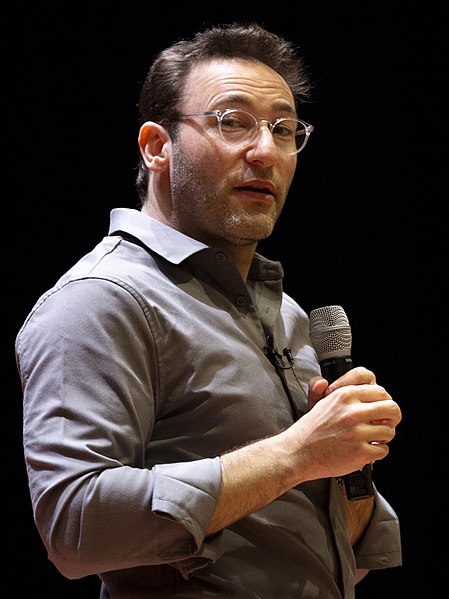Beyond Logic: The Power of Heart, Soul, and Intuition in Problem-Solving
Real Problems Need Real People. Not Only Our Brains
Leadership development is a complex and multifaceted discipline that requires the cultivation of various skills and competencies. Among the many critical competencies, problem-solving stands out as one of the most crucial skills that leaders must possess. In today’s fast-paced and ever-changing business environment, effective problem-solving can make the difference between success and failure. However, problem-solving is not just about logical thinking and analytical skills. To be truly effective, leaders need to tap into their heart, soul, and intuition.
The traditional approach to problem-solving has been to rely solely on our brains to come up with solutions. This approach often involves breaking down problems into smaller components and analyzing each one independently. While this approach has its merits, it can also be limiting in some cases. Problems that require a more creative or intuitive approach may be overlooked or underappreciated when relying solely on logic and analysis.
To truly solve problems in a comprehensive and effective manner, leaders must be able to engage their heart, soul, and intuition. These aspects of our being provide unique insights and perspectives that can help us see problems in new and different ways. By embracing heart, soul, and intuition, leaders can develop a more holistic approach to problem-solving that takes into account not only the technical aspects of a problem but also the human and emotional factors that may be involved.
In this article, we will explore the concept of problem-solving with heart, soul, and intuition. We will examine the role that each of these aspects plays in the problem-solving process and discuss the benefits of embracing a more holistic approach. We will also explore some of the challenges that may arise when trying to implement heart, soul, and intuition in the workplace and provide strategies for overcoming these barriers.
Overall, this article aims to inspire leaders to think differently about problem-solving and to encourage them to tap into their heart, soul, and intuition to find new and innovative solutions to the challenges they face. By doing so, we can create a workplace that values empathy, creativity, and human connection, leading to more meaningful and impactful solutions that benefit both individuals and organizations.
The Problem with Relying Solely on Our Brains:
The human brain is a remarkable organ that enables us to think, reason, and make decisions. However, relying solely on our brains to solve problems can be limiting in some cases. This is because our brains are wired to focus on the logical and analytical aspects of a problem while often ignoring the emotional and intuitive aspects. Additionally, our brains are influenced by our biases and assumptions, which can lead us to overlook important information or perspectives.
One of the main limitations of relying solely on our brains is that it can lead to incomplete or inadequate solutions. For example, if a leader is trying to solve a problem related to employee morale, focusing solely on the logical aspects of the problem may result in a solution that addresses the surface-level symptoms but does not address the underlying emotional or cultural factors that are contributing to the issue. In contrast, using heart, soul, and intuition can help a leader understand the emotional and human factors that may be contributing to the problem and develop more meaningful and impactful solutions.
Another limitation of relying solely on our brains is that it can stifle creativity and innovation. Our brains are wired to follow established patterns and ways of thinking, which can limit our ability to see problems in new and different ways. In contrast, using heart, soul, and intuition can help a leader tap into their creative side and develop more innovative solutions that may not have been considered otherwise.
Furthermore, relying solely on our brains can limit our ability to connect with others and develop meaningful relationships. When we focus only on the logical and analytical aspects of a problem, we may overlook the emotional and human factors that are involved. This can lead to a lack of empathy and understanding among team members and can hinder the development of a collaborative and supportive workplace culture.
While the brain is an essential tool in problem-solving, relying solely on our brains can lead to incomplete solutions, limit creativity and innovation, and hinder our ability to connect with others. To truly solve problems in a comprehensive and effective manner, leaders must be willing to engage their heart, soul, and intuition to develop a more holistic approach that takes into account the emotional and human factors involved.
The Role of Heart, Soul, and Intuition in Problem-Solving:
The concept of heart, soul, and intuition may seem abstract and difficult to define, but they are essential aspects of our being that can greatly enhance our problem-solving abilities.
Heart, in the context of problem-solving, refers to the ability to empathize and connect with others. By tapping into our heart, we can better understand the emotional and human factors that are involved in a problem. This can help us develop solutions that not only address the technical aspects of a problem but also take into account the feelings and experiences of those involved.
Soul, on the other hand, refers to our inner essence or spirit. By tapping into our soul, we can connect with our deepest values and beliefs. This can help us develop solutions that align with our personal and organizational values, creating a sense of purpose and meaning that can drive us towards more meaningful and impactful solutions.
Finally, intuition refers to our ability to sense and understand things without relying on conscious reasoning. By tapping into our intuition, we can develop a deeper understanding of a problem that may not be apparent through logical thinking and analysis. Intuition can help us see patterns and connections that may be hidden, leading us towards more innovative and creative solutions.
By combining these aspects of our being with logical thinking and analysis, we can develop a more holistic approach to problem-solving that takes into account the emotional, human, and intuitive factors involved in a problem. This can lead to more meaningful and impactful solutions that address the root causes of a problem, rather than just treating the symptoms.
Furthermore, by using heart, soul, and intuition in problem-solving, we can develop a deeper connection with others and foster a more collaborative and supportive workplace culture. This can lead to increased trust, empathy, and understanding among team members, which can contribute to more effective problem-solving and overall organizational success.
Heart, soul, and intuition are essential aspects of our being that can greatly enhance our problem-solving abilities. By tapping into these aspects, leaders can develop a more holistic approach to problem-solving that takes into account the emotional, human, and intuitive factors involved in a problem. This can lead to more meaningful and impactful solutions, as well as foster a more collaborative and supportive workplace culture.
The Benefits of Problem-Solving with Heart, Soul, and Intuition in the Workplace:
Using heart, soul, and intuition in problem-solving can bring numerous benefits to the workplace. These benefits not only contribute to more effective problem-solving but also create a more positive and supportive work environment. Here are some of the key benefits of problem-solving with heart, soul, and intuition in the workplace:
Improved Employee Morale and Job Satisfaction:
When leaders use heart, soul, and intuition in problem-solving, they show that they value the emotional and human factors involved in a problem. This can lead to increased employee morale and job satisfaction, as employees feel that their feelings and experiences are being taken into account. This, in turn, can contribute to increased engagement and productivity, leading to a more successful organization.
More Creative and Innovative Solutions:
Using heart, soul, and intuition in problem-solving can lead to more creative and innovative solutions that may not have been considered otherwise. By tapping into our creative and intuitive side, we can develop solutions that address the root causes of a problem, rather than just treating the symptoms. This can lead to more meaningful and impactful solutions that create lasting change.
Greater Empathy and Understanding Among Team Members:
When leaders use heart, soul, and intuition in problem-solving, they demonstrate empathy and understanding towards team members. This can foster a more collaborative and supportive workplace culture, where team members feel valued and supported. This, in turn, can lead to increased trust and communication among team members, leading to more effective problem-solving and overall organizational success.
Increased Alignment with Organizational Values:
Using heart, soul, and intuition in problem-solving can lead to solutions that align with the organization’s values and purpose. When leaders tap into their soul and values, they can develop solutions that are aligned with the organization’s vision and mission. This, in turn, can create a sense of purpose and meaning for employees, leading to increased engagement and commitment to the organization’s goals.
Improved Customer Satisfaction:
Using heart, soul, and intuition in problem-solving can lead to solutions that better address the needs and experiences of customers. By tapping into our heart and empathy, we can better understand the emotional and human factors involved in customer interactions. This, in turn, can lead to more meaningful and impactful solutions that create a positive customer experience and foster customer loyalty.
Using heart, soul, and intuition in problem-solving can bring numerous benefits to the workplace, including improved employee morale, more creative and innovative solutions, greater empathy and understanding among team members, increased alignment with organizational values, and improved customer satisfaction. By prioritizing these aspects in problem-solving, leaders can create a workplace culture that values empathy, creativity, and human connection, leading to more meaningful and impactful solutions that benefit both individuals and organizations.
Overcoming Barriers to Implementing Heart, Soul, and Intuition in Problem-Solving:
While the benefits of using heart, soul, and intuition in problem-solving are clear, implementing these aspects in the workplace can be challenging. Here are some of the common challenges that may arise when trying to implement heart, soul, and intuition in problem-solving, as well as strategies for overcoming these barriers:
Resistance to Change:
One of the main challenges in implementing heart, soul, and intuition in problem-solving is resistance to change. Some team members may be resistant to new approaches or may be skeptical of the value of using heart, soul, and intuition in problem-solving. To overcome this, leaders must communicate the benefits of using these aspects and demonstrate their effectiveness through examples and case studies. Leaders can also involve team members in the problem-solving process and encourage their input and feedback, which can increase buy-in and engagement.
Lack of Training:
Another challenge in implementing heart, soul, and intuition in problem-solving is the lack of training and resources. Many leaders and team members may not have experience using these aspects in problem-solving, and may not know how to effectively incorporate them into their work. To overcome this, leaders can provide training and resources on using heart, soul, and intuition in problem-solving, such as workshops, coaching sessions, and reading materials. Leaders can also provide opportunities for team members to practice using these aspects in problem-solving and provide feedback and support.
Time and Resource Constraints:
Another challenge in implementing heart, soul, and intuition in problem-solving is time and resource constraints. Many organizations operate in fast-paced environments with tight deadlines and limited resources, which can make it difficult to prioritize heart, soul, and intuition in problem-solving. To overcome this, leaders can prioritize these aspects by setting aside dedicated time and resources for problem-solving that specifically incorporates heart, soul, and intuition. Leaders can also create a culture that values these aspects and encourages their use in problem-solving, which can make it easier to prioritize them in the face of competing demands.
Lack of Trust and Empathy:
Finally, a common challenge in implementing heart, soul, and intuition in problem-solving is a lack of trust and empathy among team members. When team members do not trust or understand each other, it can be difficult to effectively incorporate heart, soul, and intuition in problem-solving. To overcome this, leaders can prioritize building trust and empathy among team members through team-building activities, communication training, and other initiatives that foster collaboration and understanding. Leaders can also model empathetic and trusting behaviors and encourage team members to do the same, creating a supportive and collaborative workplace culture.
Implementing heart, soul, and intuition in problem-solving can be challenging, but it is essential for creating a workplace culture that values empathy, creativity, and human connection. By overcoming the barriers to using these aspects, leaders can develop more meaningful and impactful solutions that benefit both individuals and organizations. Leaders can create a workplace that values heart, soul, and intuition by prioritizing these aspects, providing training and resources, setting aside dedicated time and resources, and building trust and empathy among team members.
Creating a Better World, One Problem at a Time
In conclusion, problem-solving is an essential skill for leaders, and it requires a multifaceted approach that incorporates heart, soul, and intuition, in addition to logical thinking and analysis. By tapping into these aspects of our being, leaders can develop a more holistic approach to problem-solving that takes into account the emotional, human, and intuitive factors involved in a problem.
Using heart, soul, and intuition in problem-solving can bring numerous benefits to the workplace, including improved employee morale and job satisfaction, more creative and innovative solutions, greater empathy and understanding among team members, increased alignment with organizational values, and improved customer satisfaction. By prioritizing these aspects in problem-solving, leaders can create a workplace culture that values empathy, creativity, and human connection, leading to more meaningful and impactful solutions that benefit both individuals and organizations.
While implementing heart, soul, and intuition in problem-solving can be challenging, leaders can overcome these barriers by prioritizing these aspects, providing training and resources, setting aside dedicated time and resources, and building trust and empathy among team members.
As leaders, it is our responsibility to create a workplace culture that values problem-solving with heart, soul, and intuition. By doing so, we can create a more positive and supportive work environment that fosters collaboration, creativity, and innovation. Ultimately, this can lead to more meaningful and impactful solutions that benefit both individuals and organizations.
In conclusion, by embracing heart, soul, and intuition in problem-solving, we can create a better world, one problem at a time.







